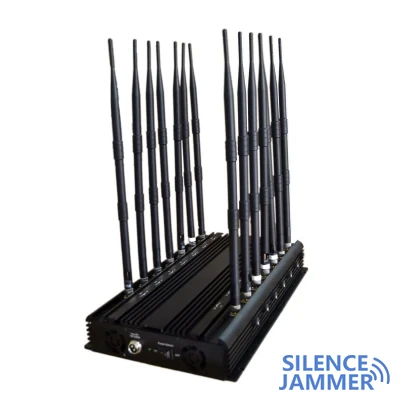In recent years, the US Army has continuously increased its investment in the field of electronic warfare, striving to cope with the increasingly complex electromagnetic spectrum threats on the modern battlefield.cell phone jammer As an important part of this effort, the Multi-Function Electronic Warfare-Air Large Project (MFEW-AL) has become one of the core technologies of the military’s pursuit of electronic warfare dominance. GPS jammerThe latest test of the system not only demonstrated its flexibility on UAV platforms, but also paved the way for future applications on other combat aircraft platforms.Wifi jammer
The main function of the MFEW-AL system is to depict the electromagnetic spectrum of the area it flies over in real time, detect, locate and interfere with enemy communications and radar systems. drone jammer This capability is critical for future battlefields, especially at a time when information warfare and electronic warfare have become the dominant combat methods.GSM jammer The successful test of MFEW-AL highlights its ability to adapt to various environments and platforms on the modern battlefield.signal jammer
Expansion and flexible application of test platforms
Lockheed Martin is responsible for the development of the MFEW-AL system, which was originally designed to be equipped with the MQ-1C Gray Eagle UAV manufactured by General Atomics. However, as the application of the system in the military continues to expand, the test platform has also expanded from drones to more traditional manned aircraft. This summer, MFEW-AL was successfully tested on an MC-12W Liberty aircraft, which is typically used for intelligence, surveillance and reconnaissance missions at medium and low altitudes. The Air Force also intends to integrate the system on the A-10 attack aircraft to further expand its scope of use.
This multi-platform test not only verified the adaptability of MFEW-AL in different flight environments, but also demonstrated its flexibility under different mission requirements. By successfully completing these tests, MFEW-AL has taken an important step towards airworthiness certification, which is expected to be completed in fiscal year 2024, laying the foundation for its full deployment.
The modular design of the technology improves adaptability and maintenance efficiency
One of the core advantages of the MFEW-AL system is that it adopts the modular open standard (CMOSS) design, which is similar to the plug-and-play method of Lego bricks. The CMOSS system modularizes communications, mission planning and other key functions, allowing different electronic warfare functions to be quickly adjusted according to specific mission requirements. This design not only reduces the development cycle of the equipment, but also greatly improves the maintenance efficiency and operational flexibility of the system.
















